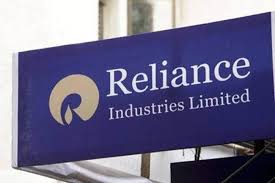Reliance suffers worst profit fall in over 11 year on weak fuel demand

Reliance Industries Ltd (RELI.NS), operator of the world’s biggest refining complex, reported a 39% slump in its March quarter profit, the steepest drop since December 2008, as a sharp fall in oil prices and lower fuel demand hammered its dominant energy businesses.
Mukesh Ambani, chairman of Reliance Industries Limited, poses for photographers before addressing the annual shareholders meeting in Mumbai, India, June 12, 2015. REUTERS/Shailesh Andrade/Files
The company, India’s largest by market value, posted consolidated profit of 63.48 billion rupees ($ 845 million) in the three months ended March 31, missing analysts’ expectation of an average 105.20 billion rupees by a wide margin.
A dramatic fall in global oil prices and an unprecedented drop in oil demand due to the coronavirus pandemic has forced global oil major Royal Dutch Shell Plc (RDSa.L) to cut its dividend for the first time since World War Two on Thursday.
Brent crude LCoc1 lost an unprecedented two-thirds of its value in the first three months of 2020 as the health crisis crushed demand and oil producers delayed supply cuts.
This is the first decline in its quarterly profit in three years.
The conglomerate led by Asia’s richest man, Mukesh Ambani, in the last decade diversified to establish large telecoms and retail operations, but the energy division still accounts for the lion’s share of overall revenue.
The company’s profitability in March quarter was dented by an inventory loss of about 42.45 billion rupees ($ 565 million).
Refiners like Reliance buy and store crude oil for weeks, before processing it into fuel and petroleum products. An inventory loss is booked when oil prices drop by the time crude is processed into refined fuels.
Reliance said gross refining margin, the profit earned on each barrel of crude oil processed, was $ 8.90 per barrel in the March quarter, less than the $ 9.20 in the prior quarter but better than the $ 8.20 a year earlier.
However, revenue at its telecom business Jio grew in double-digits as more Indians signed up for cheap voice-calling and mobile internet. Jio’s subscriber base at the end of March stood at 387.5 million.
Its retail business, which runs 10,000 stores selling groceries, consumer electronics and apparel, reported a modest 4% rise in revenue, hurt in part by India’s nationwide lockdown.
Overall, Reliance’s consolidated revenue from operations fell 2.3% to 1.39 trillion rupees.
Profit pressure for the group forced Ambani to cut the pay of some top oil-and-gas division employees by up to 50%.
DEBT REDUCTION
“The announcement of pay cut ahead of results signifies some tough times for the company at least for the next few months,” said Deepak Jasani, head of research at HDFC Securities.
The oil-to-telecoms giant on Thursday unveiled the terms of a rights issue, its first in nearly three decades, to raise money and eliminate net debt by the end of this year. Its net debt at the end of March was $ 21.4 billion.
Reliance set a price of 1,257 rupees per share for India’s biggest rights issue of 531.25 billion rupees with a ratio of 1:15. Its stock closed at 1,466 rupees on Thursday.
“The rights issue size was higher than expected, though staggered payment would provide some time to shareholders to subscribe. The debt reduction plan now seems achievable though with some possible delays,” said Jasani.
Reliance has formed a joint venture with BP Plc (BP.L) to sell refined fuels in India and recently struck a deal with Facebook Inc (FB.O) to sell about 10% stake in its digital arm, Jio Platforms, for $ 5.7 billion.
The company said it has received additional interest from global investors for a deal similar to Facebook and an announcement could be made in coming months.
It is also in the process of selling a 20% stake in its oil-to-chemical business to Saudi Aramco 2222.SE.
The deal with Aramco was on track to close, the company said after it missed the deadline for closing the deal by March.


